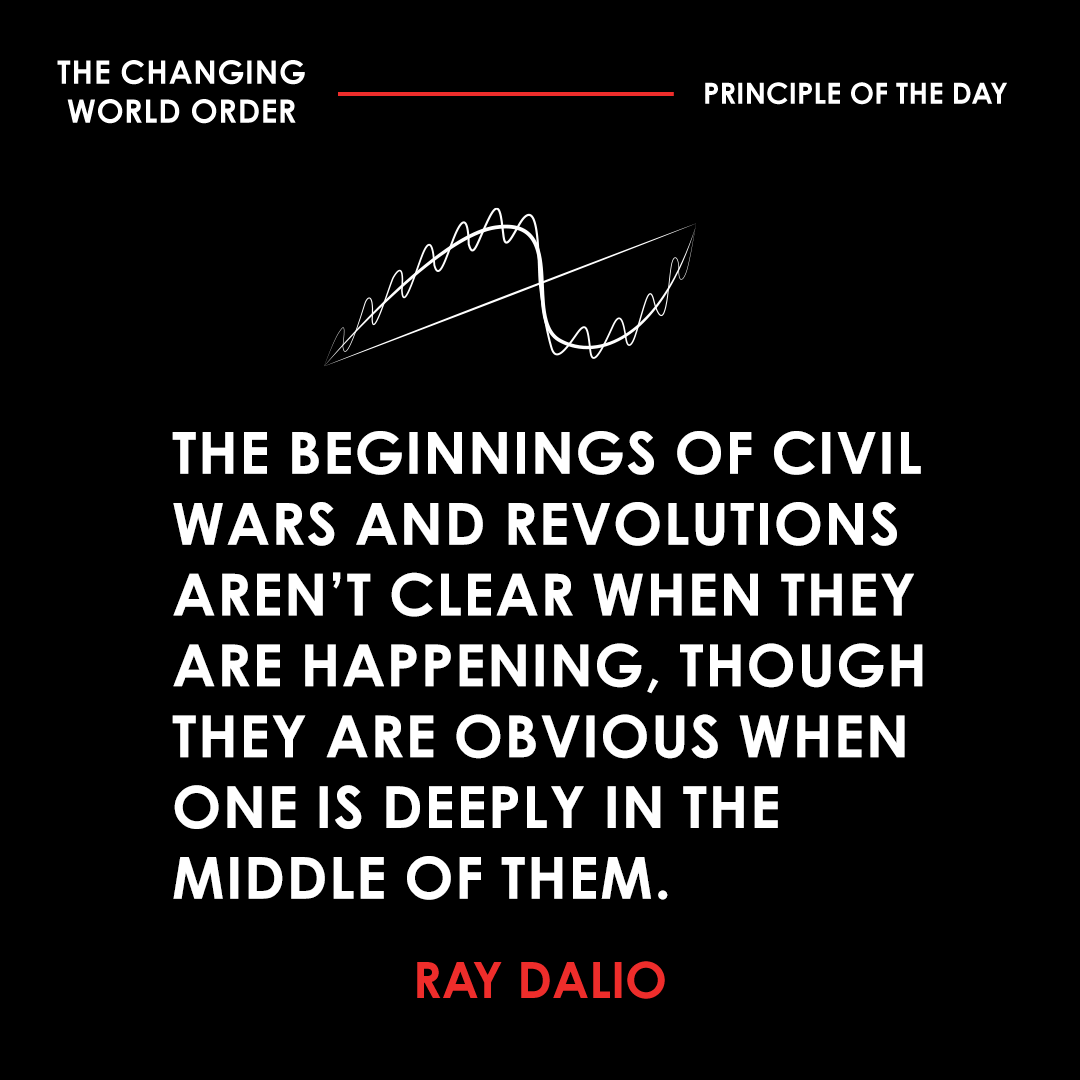
These changes are the natural consequence of needing to make big changes that can’t be made within the existing system. Almost all systems encounter them. (1/4) 

That is because almost all systems benefit some classes of people at the expense of other classes, which eventually becomes intolerable to the point that there is a fight to determine the path forward. (2/4)
When the gaps in wealth and values become very wide and bad economic conditions ensue so that the system is not working for a large percentage of the people, the people will fight to change the system. (3/4)
For the complete picture of how things work and where we are, my new book, Principles for Dealing with the Changing World Order, is now available: amazon.com/Changing-World… (4/4)
• • •
Missing some Tweet in this thread? You can try to
force a refresh











